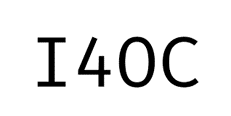Adaptation of David Kolb's inventory of learning styles in Peruvian students
Keywords:
Cognitive, Teaching - Learning, Learning StylesAbstract
The David Kolb Learning Styles Inventory was adapted for a population of 699 students, 382 men and 317 women in the 1st and 2nd years of secondary school in the military promoters of Metropolitan Lima. It is assumed as a theoretical basis that Kolb's learning styles refer to the way each person approaches learning in a peculiar way; fruit of inheritance, previous experiences and current demands of the environment in which it operates. Obtaining evidence of content validitythrough the Judges Criterion, using the Aiken reliability index V; For the Internal Consistency the Cronbach's Alpha Coefficient was used, obtaining a score of 0.99 and establishing the Percentiles by Areas EC - OR - CA - EA and by Dimensions CA - EC (x) and EO - OR (y), determining the categories based on the established coordinates, whose ranges are x = -21 to 11 and = -17 to 14.
References
Beltrán, J. (1998). Procesos, Estrategias y Técnicas de Aprendizaje. México D.F: Síntesis.
Escurra, L. (1992). Adaptación del Inventario de Estilos de aprendizaje de Kolb. Psicología Vol XI N° 1 y 2. Universidad Nacional Mayor de San Marcos.
Kolb, D; Rubin, I. Mchityre, J. (1977). Psicología de las Organizaciones, Problemas contemporáneos: Madrid: Prentice Hall.
Kolb, D. (1984). Experiental Learnig. Experience as the source of learning and development. New Jersey: Prentice Hall.
Montero, I. y Alonso, J. (1992b). El cuestionario MAPE-II. En J. Alonso (ed.), Motivar en la adolescencia: Teoría, evaluación e intervención (pp. 205-232). Madrid: Servicio de Publicaciones de la Universidad Autónoma.
Sánchez, H. y Reyes, C. (2002). Metodología y Diseños en la Investigación Científica. Universidad Ricardo Palma. Lima. Editorial Universitaria.
Downloads
Published
How to Cite
Issue
Section
License
Copyright (c) 2019 PsiqueMag

This work is licensed under a Creative Commons Attribution-NonCommercial-NoDerivatives 4.0 International License.
You are free to:
- Share — copy and redistribute the material in any medium or format
- The licensor cannot revoke these freedoms as long as you follow the license terms.
Under the following terms:
-
Attribution — You must give appropriate credit, provide a link to the license, and indicate if changes were made. You may do so in any reasonable manner, but not in any way that suggests the licensor endorses you or your use.












